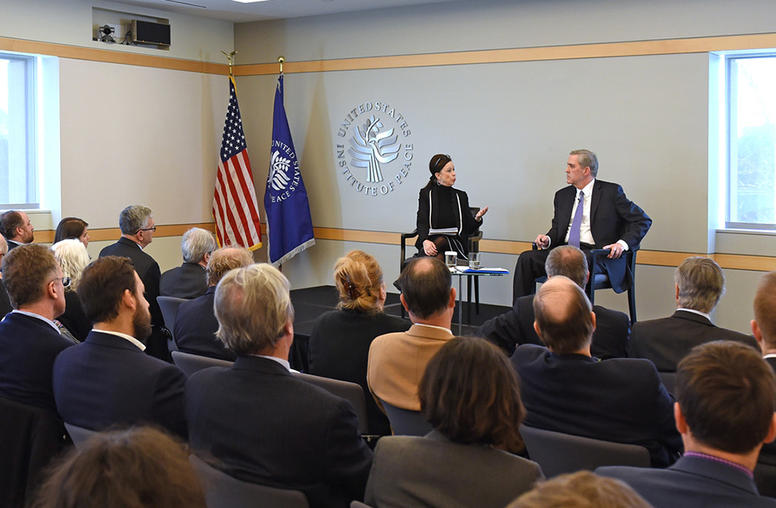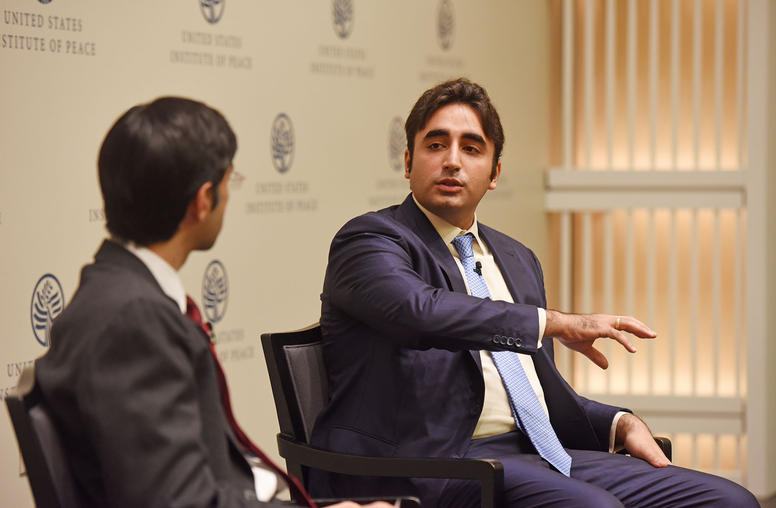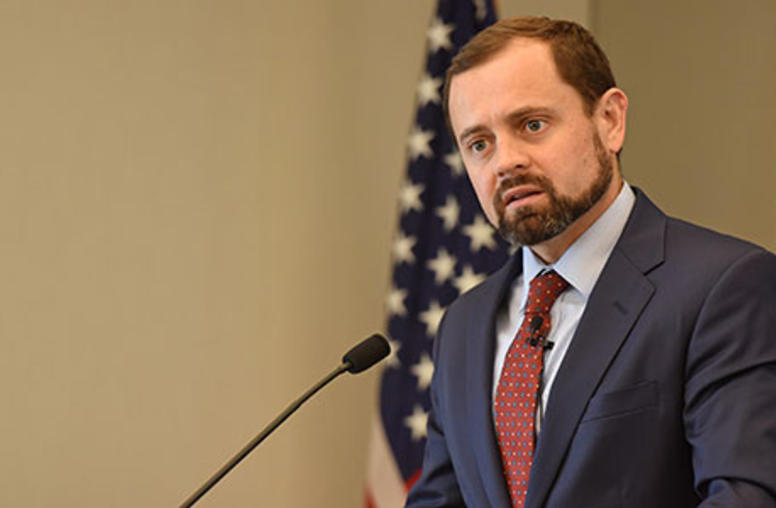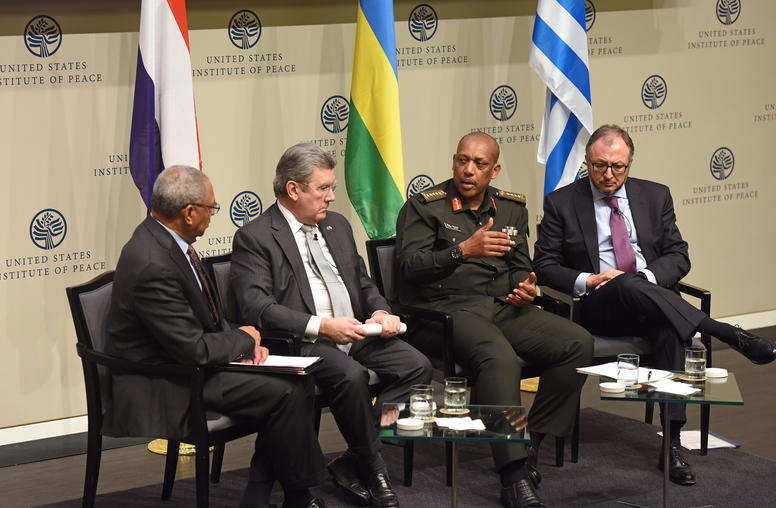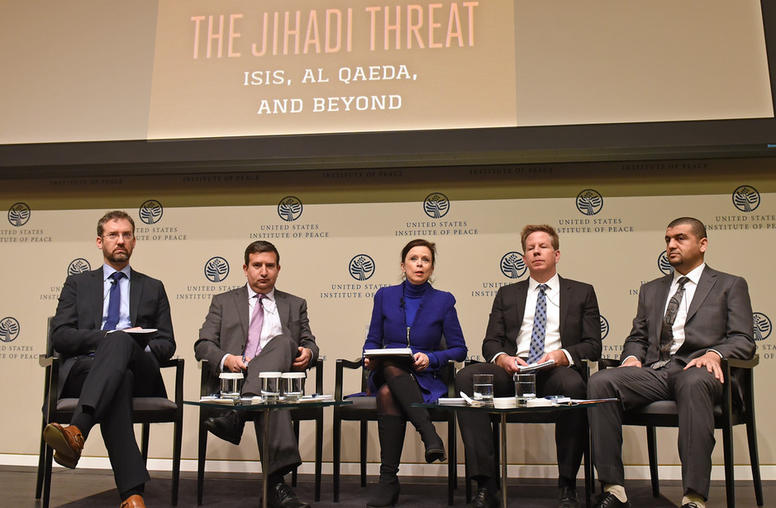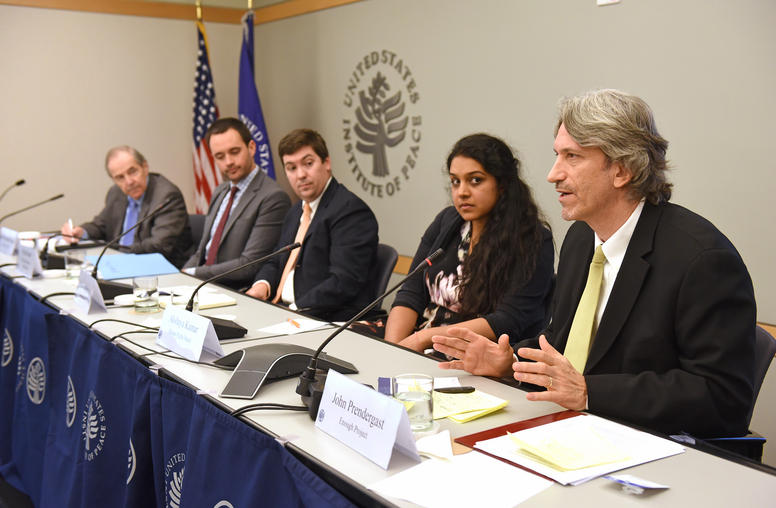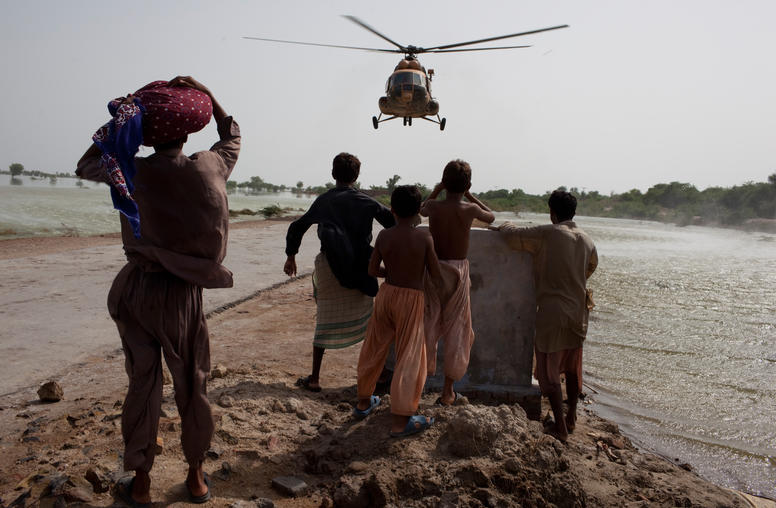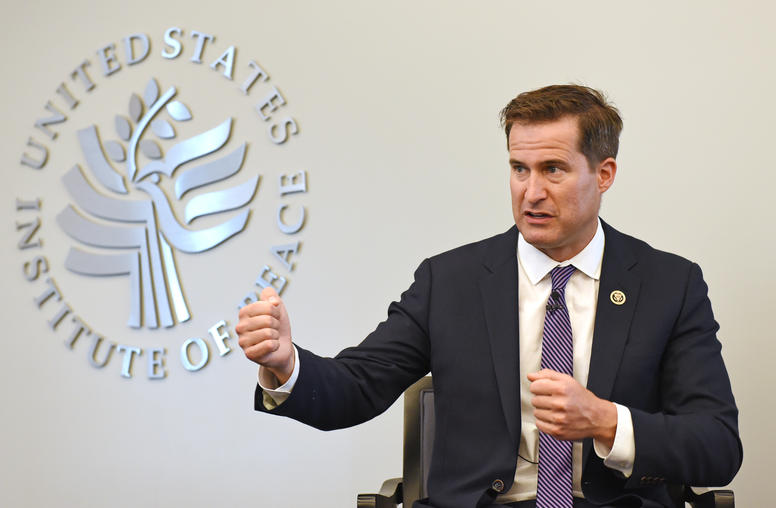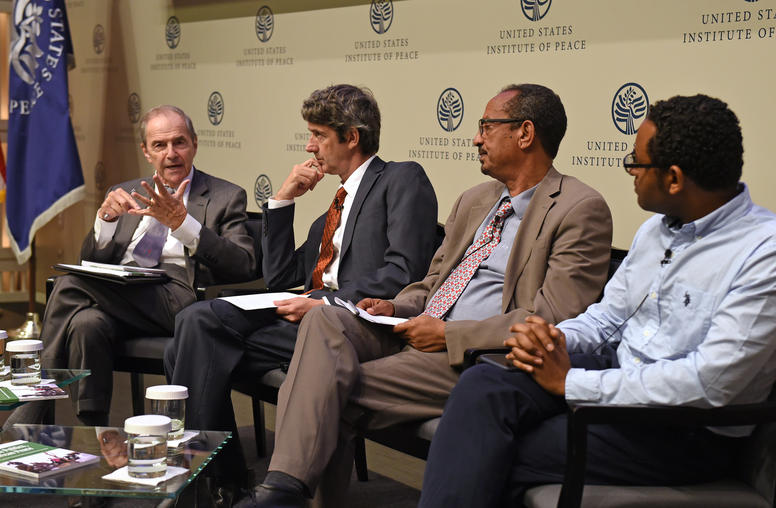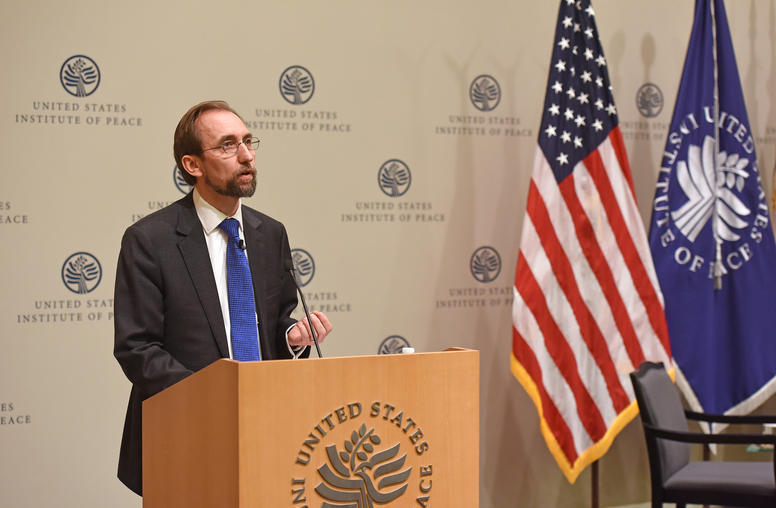
U.N. Human Rights Chief on His ‘Impossible Diplomacy’
Georgetown University's annual Trainor Award and Lecture recognizes excellence in the conduct of diplomacy. It has been awarded to senior American diplomats and distinguished public servants from around the world. On Feb. 16, the U.S. Institute of Peace hosted Amb. Zeid as he received the annual Trainor Award from Georgetown University’s Institute for the Study of Diplomacy. Amb. Zeid spoke on “The Impossible Diplomacy of Human Rights.”
